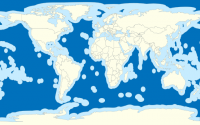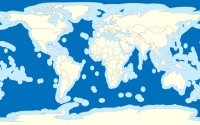Freedom of Navigation Program

Quicktabs: Keywords

The author argues that the recent outrage over U.S. freedom of navigation operations in India's territorial waters are not a concern as both India and the U.S. are in alignment about the need to enforce UNCLOS provisions, it just may not be politic for both sides to admit as much.
[ More ]
The author argues that U.S. Freedom of Navigation Operations (FONOPs) in East Asia are increasingly provocative and prone to accidents and they could lead to "a long, drawn-out crisis that, even if it stops short of war, would prove highly disruptive to U.S. efforts to cooperate with China on areas of great import."
[ More ]
The author argues that U.S. shows of force in the South China Seas through freedom of navigation operations are counterproductive and risk turning our allies against us. Instead the author argues a diplomatic approach would be more proportional and "seems to be sufficient for other nations, including maritime powers whose rights the U.S. claims to be protecting."
[ More ]
The authors review the threat from China's aggressive claims in the South China Sea to the global maritime order and recommend a number of ways (short of ratifying UNCLOS) that the U.S. can "safeguard U.S. interests and raise the costs of further destabilizing Chinese behavior."
[ More ]
A U.S. Navy destroyer carried out a "freedom of navigation operation" on Thursday, coming within 12 nautical miles of an artificial island built up by China in the South China Sea, U.S. officials told Reuters.
[ More ]
A senior U.S. naval commander insisted Thursday that American policy on the South China Sea has not shifted, despite uncertainty about President Trump’s response to Chinese militarization of the disputed waters.
[ More ]
The author advocates for a more muscular deterrent with China by stepping up its committment to freedom of navigation operations in the South China Sea to make U.S. resolve more apparent.
[ More ]
The authors argue that the Trump Administration's suspension of FONOPs, presumably to curry favor with the Chinese over North Korea or trade, is a bad bargain for the U.S. as it will not incentivize China to cooperate and could destabilize relations in the long run.
[ More ]
The Trump Administration's reliance on China for assistance with containing North Korea has led to a dramatic reduction in FONOPs in the disputed South China Seas to contest China's claims and ensure freedom of navigation.
[ More ]
China's Foreign Ministry on Wednesday warned Washington against challenging its sovereignty, responding to reports the United States was planning fresh naval patrols in the disputed South China Sea.
[ More ]